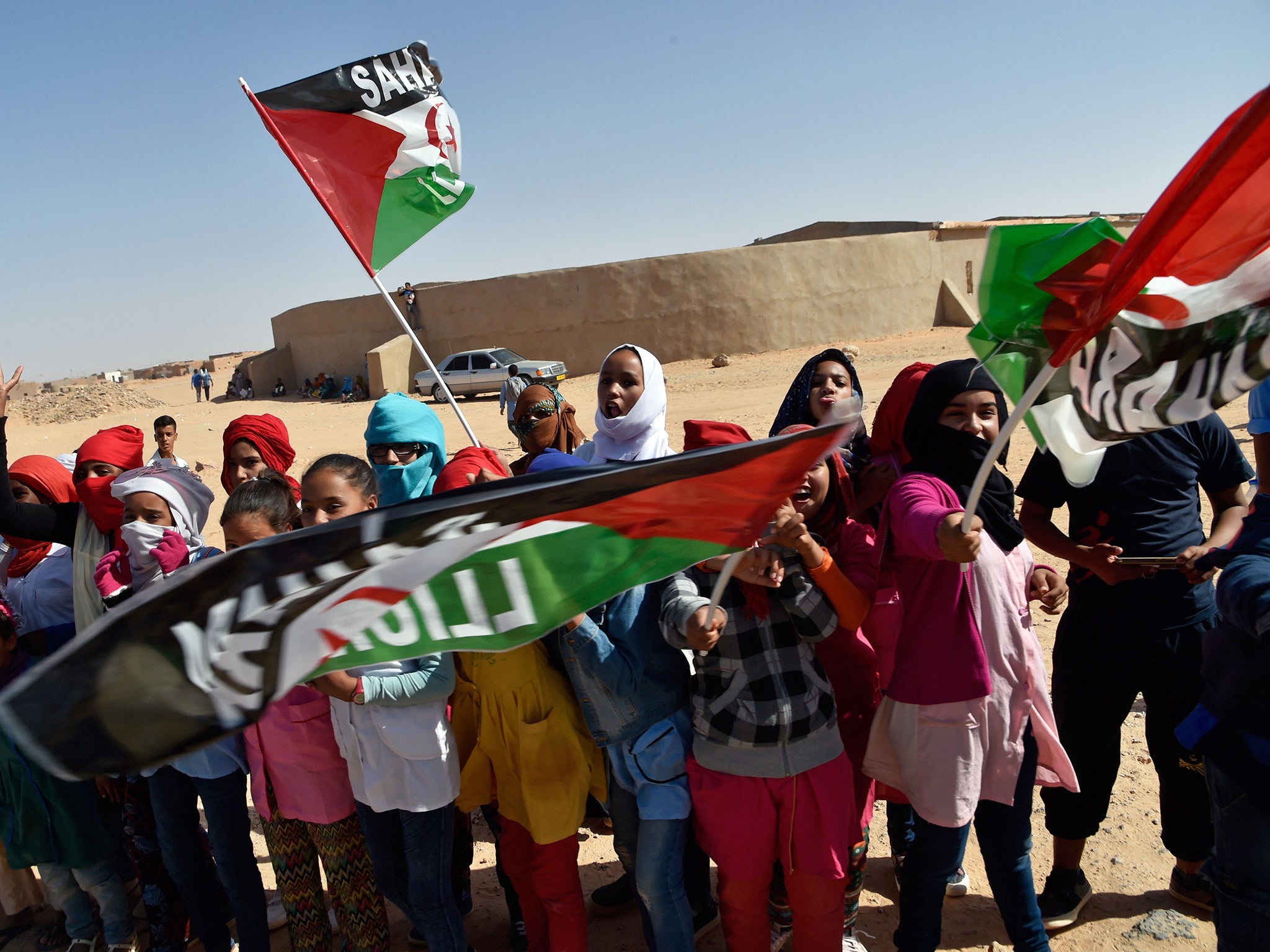The Independent's journalism is supported by our readers. When you purchase through links on our site, we may earn commission.
The Sahrawi refugee crisis is one of the longest running humanitarian issues – so why do so few know about it?
Within the territories Morocco claims in the Sahrawi homeland of Western Sahara, Amnesty have recorded Rabat’s widespread use of torture, unfair trial and arbitrary detention

Your support helps us to tell the story
From reproductive rights to climate change to Big Tech, The Independent is on the ground when the story is developing. Whether it's investigating the financials of Elon Musk's pro-Trump PAC or producing our latest documentary, 'The A Word', which shines a light on the American women fighting for reproductive rights, we know how important it is to parse out the facts from the messaging.
At such a critical moment in US history, we need reporters on the ground. Your donation allows us to keep sending journalists to speak to both sides of the story.
The Independent is trusted by Americans across the entire political spectrum. And unlike many other quality news outlets, we choose not to lock Americans out of our reporting and analysis with paywalls. We believe quality journalism should be available to everyone, paid for by those who can afford it.
Your support makes all the difference.Something remarkable happened in Geneva last week. On 5 December, representatives of the Moroccan kingdom sat down with their counterparts in the Polisario Front to see if some kind of solution could be reached to one of the world’s longest-running and most overlooked humanitarian tragedies: the decades-old dispute over the Western Sahara and the fate of the thousands of Sahrawi people who fled the Moroccan advance there in the mid 1970s.
For over 40 years, tens of thousands of the former inhabitants of this sparse, mineral rich desert region have lived as refugees in Algeria. To put that in perspective, there are middle-aged adults living in refugee camps right now who have never known a permanent home.
The exact number of refugees is disputed, but 2016 UNHCR estimate of the main population of the five camps around the desert city of Tindouf, put it at almost 100,000.
Despite the current talks, there appears to be little real hope they are any closer to going home now than when Morocco first crossed their border 43 years ago.
This is not a situation of the Sahrawi peoples' making. During Morocco’s 1975’s Green March - or invasion, to give it another name - the city of Rabat literally landed upon them.
Rushing into the Gordian knot of claims over the territory following the Spanish withdrawal, the Moroccan advance of around 350,000 civilians, gamely escorted by the King’s soldiers, drove forward into Western Sahara. They pushed before them a bow wave of civilian displacement and militia conflict that would roil the region for the next 16 years.
A fractious peace, brokered in 1991, gained little for the Sahrawi people other than global obscurity and a vanquishing of their plight from the public consciousness.
The Sahrawi independence movement, the Polisario Front, initially formed to oust the Spanish, now operates as a government-in-exile from the camps around Tindouf.
With their military forces supplied, equipped and trained by Morocco’s arch rival, Algeria, the Polisario have remained a belligerent thorn in Rabat’s side, with the threat of renewed violence never far away.
Lost amidst the international tussle, time and anonymity have taken their toll on the Sahrawi refugees. Conditions within the camps remain desperate. Electricity is sporadic. The land is dry, with just a few goats, sheep and camels able to graze the desert’s brush.
In July, the average temperature was 43 degrees, the only shade provided by the tents and mud houses the Sahrawi have built. Tankers deliver water once a month.
Today, the World Food Programme estimates that around 77 per cent of the refugees’ food comes from international donations. In April, the Crisis Group reported that donor revenue for the camps had shrunk from $10 million to $7 million over the past several years. Jobs are practically non-existent and, in the absence of employment, boredom, crime and the threat of radicalisation gnaw at the heels of the camps’ young and disaffected.
Accusations of forced disappearances, torture and human rights abuses are rife in the camps. Within the territories Morocco claims in the Sahrawi homeland of Western Sahara, Amnesty have recorded Rabat’s widespread use of torture, unfair trial and arbitrary detention.
Morocco, for its part, has launched counter accusations, alleging the Polisario Front are forcing refugees to remain with the camps against their will and strangling freedom of expression among the refugee population. None of these accusations have been supported by either independent media or the aid agencies that maintain a permanent presence there.
Given the age and depth of the grievances assembled at the UN’s roundtable last week, there was little expectation that genuine progress would occur. That they were held at all and that a further round has been scheduled for next year is at least something.
However, the fact that the objectives of the Polisario Front and Morocco are fundamentally irreconcilable cannot be escaped.
Rabat, it seems – inured to regarding the Western Sahara as a fundamental part of its territory – is willing to go no further than its earlier offer of self-autonomy within the Moroccan Kingdom.
The Polisario, perhaps understandably, say that they are ready to negotiate anything but the “inalienable and imprescriptible right of our people to self-determination."
In the middle stand the refugees in their thousands, forgotten by the world, growing up and growing old in exile.
Join our commenting forum
Join thought-provoking conversations, follow other Independent readers and see their replies
Comments